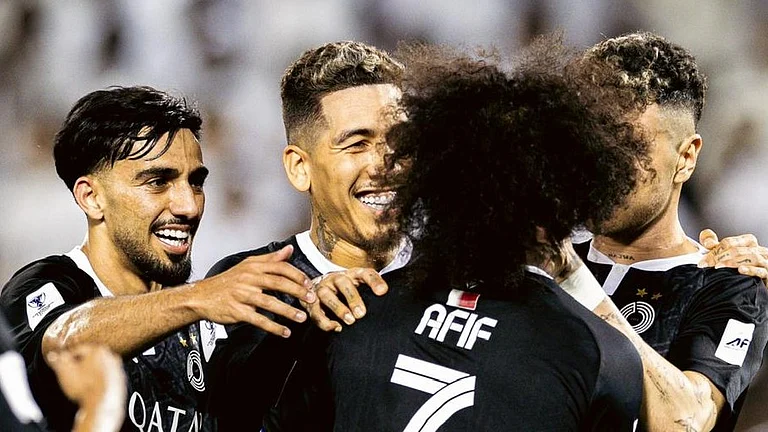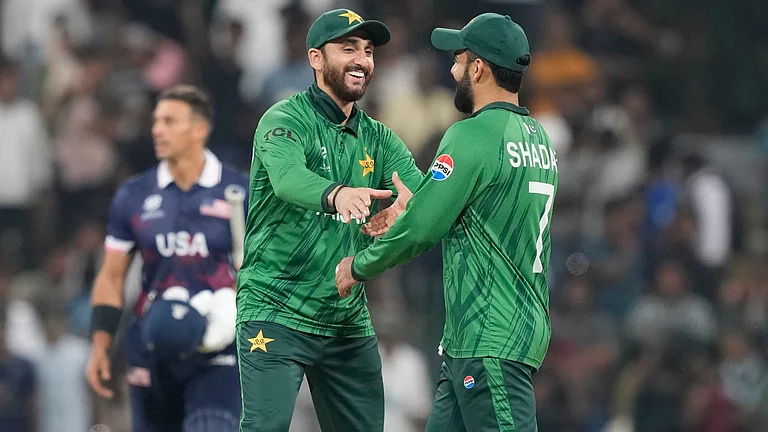Rakesh Tikait speaks to Jayanta Bhattacharya about the farmers protest, its future and the tears that changed the narrative of the stir. Excerpts…
What is the future of your protests? Won’t it peter out with time? What do you plan to do next?
Time will not kill the struggle. The government wanted to break up the protests, it wanted to divide us. It could not and that time is past. Now we’ll go to Haryana, meet the people. We need to ensure the protests continue at all the sites. Those leading the sit-in at Tikri (at Delhi-Haryana) border need to continue, and not allow any efforts to break down the movement.
I can understand if the government has any compulsion. But let us sit down and discuss what that compulsion is. Let us find a way to overcome the constraints, if any. But they need to take us into confidence and share the compulsion and we can suggest the solution.
I do not want a wrong picture (of our country) to be painted before the world. I’ll never want a message to go out that the government has bowed. Both sides should respect each other and find a way where no one’s dignity is compromised.
ALSO READ: Running On Jat Fuel
There are reports of differences between you and your brother Naresh Tikait, who is the BKU president, but you have mostly prevailed. Even during the ongoing agitation, he announced that Ghazipur protest will be called off since he did not want a confrontation with the police and administration, but you stuck to it.
Why should we differ? It’s all part of a disinformation campaign, an effort to break the movement. First, they targeted those from Punjab, the Sikhs. Then they spread canards about farmers from Haryana, then it was the turn for those from western Uttar Pradesh. They called us Khalistani, they called us Pakistani…
Tikaits are always together; in thick or thin, they are all part of the struggle. He (Naresh) stays in our village and takes care of programmes and the people there. He held a panchayat there to decide the future plan and programmes. People wanted to march down to the protest site after the panchayat meeting was over. But we did not want the crowd to grow here. They can come when required—for support. So, he stopped them for the time being.
We follow a particular system. Our work, or area of operation, is clearly demarcated. My brother looks after the khap, addresses local issues, and takes care of the interests of people there.
ALSO READ: Onward Ticket
When I’m leading a protest, I can’t move out of the site I am in. But in case there is a venue where programmes are being held, and I am unable to go, he goes. If he too is occupied and unable to visit, then the other brother goes. If the Tikaits are spearheading an agitation, then one brother will definitely be at the spot. The Tikait legacy was there and it still continues. We believe that any child born in this family will have to take an active part in a struggle someday.

Your breaking down while addressing the media when asked by authorities to vacate Ghazipur protest site made several hundred farmers return to join you. Was it a conscious decision?
I was emotional. I was hurt the way a narrative was being built; a division was being created to break our struggle. But had the protest been broken that day, there would not have been another movement for another 20 years. The struggle would have ended and so would have the protestors.
No one would have had dared to organise another movement for a long time. But that night, farmers stood like a tree in a storm. The storm has since passed. Today, the struggle will continue with those who withstood the storm and stayed rooted.
The dry sticks and leaves have blown away. Those who stood firm will continue the discussions and negotiate with the government to deliver what is due to farmers.
There are complaints by local people that the crowds collecting at protest sites are proving a hinderance.
We are trying to manage the crowd here so that not too many people collect at a time. Therefore, it was decided to cancel the march after the mahapanchayat was held. Our supporters are at their own areas, attending to their duties. We don’t want to create a ruckus or commotion.
Farmers have to pay equal attention to their land and the movement. If required, they will join the agitation at any point of time. But till then, they will work in the fields and attend to their chores and duties. But all this time, they will also keep a close watch on the ongoing protests.
Political fortunes have eluded your family. There are allegations that this agitation is an attempt at creating a platform for the opposition parties.
Opposition leaders visiting our protest site is akin to guests visiting our home. We have to give due dignity and show respect that is expected to be extended to a guest. However, politicians are not allowed to go up on to the dais. They are not supposed to share this platform. Therefore, we have made special arrangements for those people who represent political parties. Right next to the stage, but below it, we have placed chairs. Now it’s up to the guests, whether they intend to sit on the chair or on the ground. But never on the dais.
ALSO READ: Sow No Hope
Also, we do not offer them the mic to share their views. We are ensuring that a non-political movement remains without any party hue. And what can the Opposition do? They don’t control things. They don’t have the control in their hands.
Every person resorts to so-called politics at some time or the other. Even when you cast your vote, it’s a political party you are supporting. But till now I’ve never disclosed the name of the party I voted for. Neither do I force upon others or try to influence their opinion.
This time, I’ve announced that I had voted for the BJP. I’ve disclosed this even from the dharna stage. In fact, my wife and I went to cast our vote together, in the same vehicle, but were unaware of each other’s preference.
Neither do we discuss the particular party or a candidate we intend to vote for—either before or after polling—nor do we try to influence the other. But I think we voted in favour of different parties his time.
Today, it is ironic that I’m protesting against the policies of the same party that I voted for. So, politics and political inclinations are different from seeking our rightful share.
Your father Mahendra Singh Tikait staged a huge rally in New Delhi’s Boat Club in 1988 and forced the government of the day to concede to his demands. How would you compare your protest?
I was there at the agitation at Boat Club. That rally was confined to only one spot but today it is wider, at several sites around Delhi. At the Boat Club rally, farmers’ representation was more from Uttar Pradesh and Haryana. Today, Punjab has bigger participation. It is significant, and I’m proud that Sikh participants are fighting for the farmers’ cause.
But do not compare me with my father. Or to the protests and rallies he led. No. I can’t be him. I can’t always think or react the way he did. But I try to follow him, emulate him. I try to imagine what he would have done when contemplating the right decision at the right time, when an agitation is going through twists and turns.
I follow his principles when leading a movement for farmers’ rights. An idea never dies. I still follow his philosophies.

























